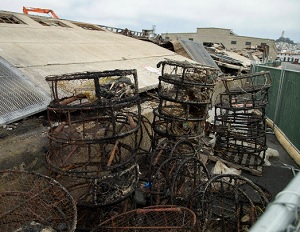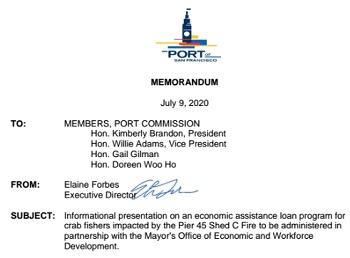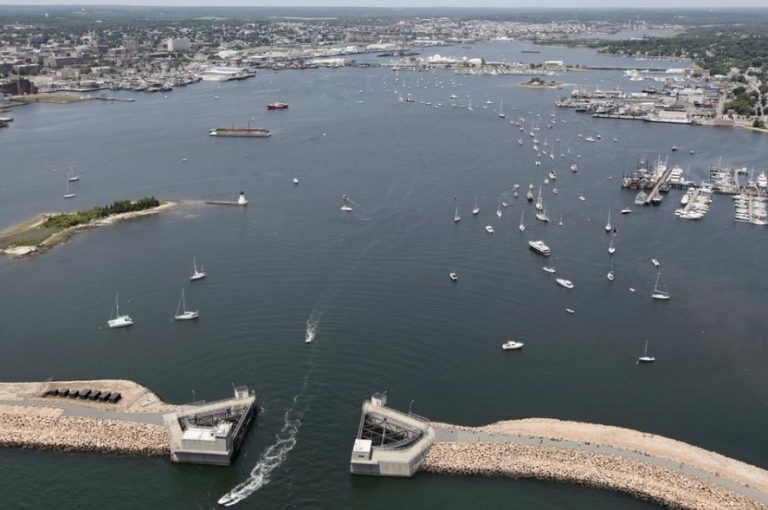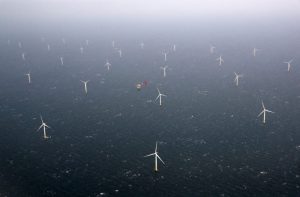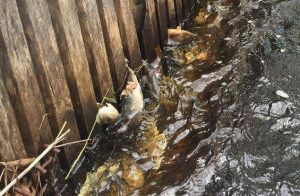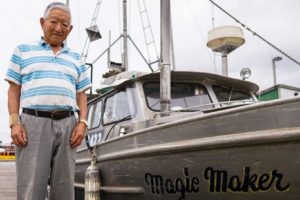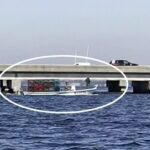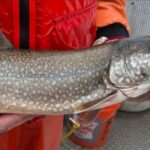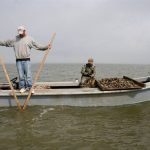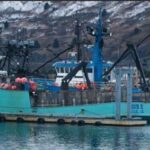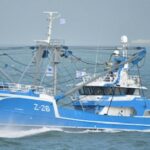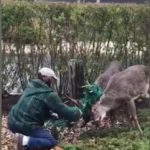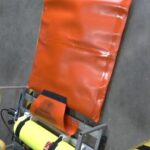Category Archives: Pacific
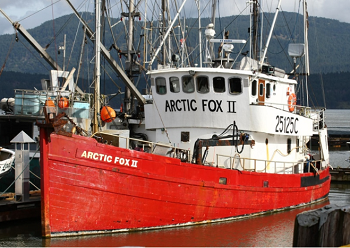
Coast Guard rescues Fisherman, continues search after fishing vessel floods 85 miles off Cape Flattery, WA
The Coast Guard rescued one fisherman from a lifeboat early Tuesday morning after a 66-foot commercial fishing boat began to take on water about 85 miles offshore of Cape Flattery with three people aboard. Watchstanders at multiple Coast Guard units received a VHF radio hail for help at about 2 a.m. from a person aboard the Canadian-based commercial fishing vessel Arctic Fox II reporting the vessel was taking on water and the three people aboard planned to abandon ship. >click to read< 12:47
2 people missing after fishing boat sinks near Victoria – >click to read< 16:25
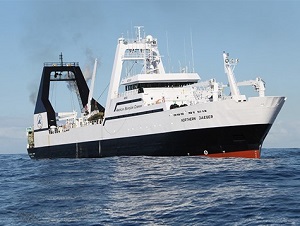
Pregnant crewmember medevac’d from fishing vessel near St. Paul, Alaska
A Coast Guard Air Station Kodiak aircrew hoisted a pregnant crewmember from a fishing vessel 200 miles northwest of St. Paul, Alaska, Saturday. Saturday morning, District 17 Command Center personnel received a medevac request from the captain of the fishing vessel Northern Jaeger for a 22-year-old female crewmember reportedly experiencing medical complications due to pregnancy. The a 308-foot factory trawler was located approximately 200 miles northwest of St. Paul. >click to read< 09:12
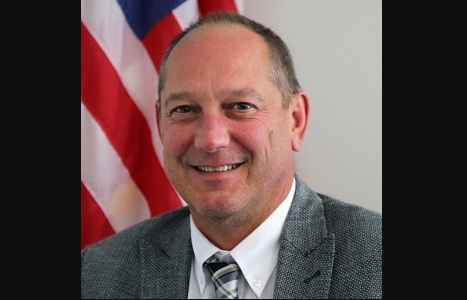
A Letter to NOAA Fisheries Assistant Administrator Chris Oliver about the resumption of Observer coverage
Mr. Oliver. Recently you sent out an announcement about the resumption of Observer coverage set to begin on August 14th in fisheries where coverage had been suspended due to the Corona virus outbreak for the last 5 months. Personally I find your reasons for the resumption of observer coverage to be not only reckless, but dangerous to the health and safety of the American fishermen who make their living from the sea.,, Yet you, in your infinite bureaucratic knowledge of what is right and what is wrong, think that at this time it is vitally important that observers be placed on fishing vessels where they can endanger the health of not only the crewmen but their families. Interestingly, you have not put your own employees at risk. You have cancelled trawl survey’s for the remainder of this year so as not to risk their exposure to this lethal disease. This despite the fact that the NOAA trawl survey vessels are state of the art, and their crew could actually be quarantined before a trip to assure their safety. I’m sure they would be happy to collect two weeks of pay for sitting around watching TV somewhere. >click to read< 15:05

‘Okay, so what do we do?’ – New Markets Reshape Crab Industry
“China shutting down was when we first started to feel the impact of the (coronavirus) pandemic, then the closures of restaurants and stores hit us full blast,” says Novotny. “All of a sudden nothing was going out.” “But necessity is the mother of invention. Everyone from the crabbers to the processors to the mom-and-pop places started saying, ‘Okay, so what do we do?’ and you started to see Pacific Seafood start shipping crab all over the country.” Until the pandemic, flash-freezing techniques, which freeze crabs in a briny block of ice to maintain flavor and texture, was a niche market, used primarily for small orders. >click to read< 10:37
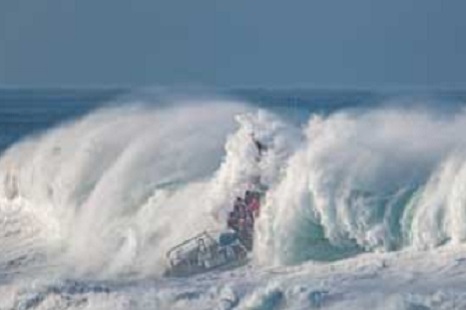
August is Coast Guard Month in Newport
Newport City Council proclaimed August as Coast Guard Month in the city of Newport. Mayor Dean Sawyer read a proclamation honoring the United States Coast Guard at the regular meeting Monday evening, encouraging “all residents and visitors to celebrate and thank the U.S. Coast Guard and Station Yaquina Bay and its individual members for protecting our shores for 230 years.” Sawyer continued, “The United States Coast Guard plays a vital role in the city of Newport and the state of Oregon. Station Yaquina Bay personnel work diligently, keeping safe the commercial fishing fleet, recreational mariners and locals and visitors in their use of the ocean and beaches.” >click to read< 13:14
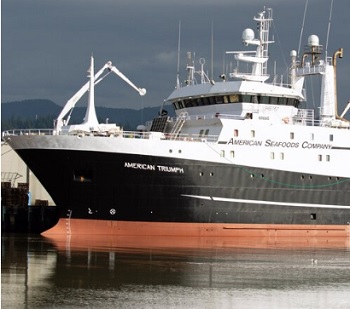
Coronavirus outbreaks keep sidelining vessels owned by one of Seattle’s largest fishing companies. No one’s entirely sure why.
It’s not surprising that fishing vessels would become potentially high-risk environments as the pandemic worsened. Like cruise ships, which became notorious Covid-19 hotspots in the early days of the outbreak, fishing trawlers tend to confine people in close quarters for prolonged periods of time. But several additional factors make fishing vessels susceptible to outbreaks: Living arrangements require people to cram into tight spaces together, sharing bunkrooms, dining areas, toilets, and other facilities. “These people are four to a room,” said Dr. Marisa D’Angeli,“They’re in bunk beds. They share a bathroom with the four people [in the] adjacent [room]—so eight people total. People don’t wear a mask when they sleep.” The work environment, which requires people to work closely together in wet, chaotic circumstances, is no less fraught with transmission opportunities. >click to read< 08:08
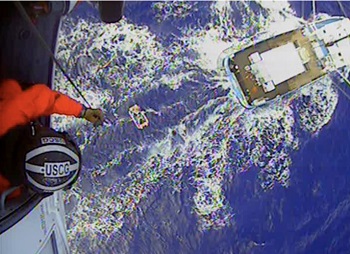
Coast Guard Medevacs injured Fisherman about 150 miles offshore from Yaquina Bay, Oregon.
The Coast Guard medevaced an injured fisherman Tuesday from a 63-foot commercial fishing boat operating about 150 miles offshore from Yaquina Bay, Oregon. Rescued was Nathanial Miller, 24. Watchstanders at Coast Guard Station Yaquina Bay received a call for help Tuesday at about 1:30 p.m. from a person using a satellite phone aboard the fishing boat Piky. After the distress was relayed from the station to watchstanders at Coast Guard Sector North Bend, Oregon, a Coast Guard flight surgeon deemed it necessary to medevac Miller and transport him to a higher level of medical care as soon as possible. >click to read< 13:15
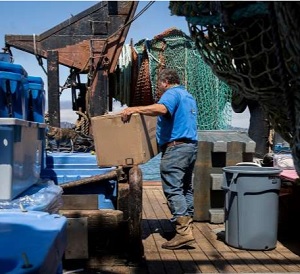
Popular Fisherman’s Wharf boat finds new home to sell fresh fish
The fisherman who built a following over the last three years by selling directly from his boat at Fisherman’s Wharf is moving his operation to the Port of Redwood City, a deepwater harbor jutting into the bay in the middle of Silicon Valley. There, Giuseppe Pennisi will also sell fish and chips and cioppino made with his freshly caught seafood out of a food truck called Pioneer Seafoods.,,, He took out a loan of $200,000 to buy the food truck trailer and to move the business. “I felt that I have maybe 10 more years left of my fishing career and I did not want to change my life,” >click to read< 08:28
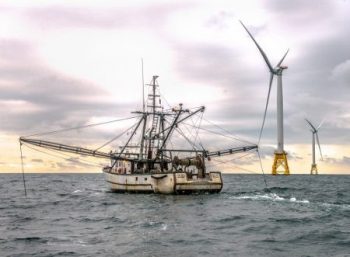
Want The World’s Most Expensive & Unreliable Electricity? Try Offshore Wind Power
The true cost of chaotically intermittent wind power is staggering; the cost of offshore wind power is astronomical. The capital cost of spearing these things offshore is multiples greater than doing so and some dimwitted farmer’s back paddock. Recouping that capital cost means that offshore wind power is 25 times more expensive than coal, gas or nuclear. Jonathan Lesser runs the numbers below, in relation to a herd of colossal white elephants just waiting to be let loose along America’s Atlantic coast. ,,, and someone said they weren’t opposed but wants to work with them!!!>click to read< 12:02
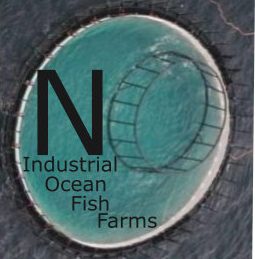
NOAA can’t make rules for offshore fish farms
A federal appeals court in New Orleans has upheld a decision that throws out rules regulating fish farms in the Gulf of Mexico. The law granting authority over fisheries to the National Oceanic and Atmospheric Administration does not also let the agency set rules for offshore fish farms, the 5th U.S. Circuit Court of Appeals said in its 2-1 decision on Monday. “I think this is the final nail in the coffin for industrial aquaculture in federal waters unless Congress gives authority,” said George Kimbrell, who represented opponents of the plan as legal director for the Center For Food Safety. >click to read< 21:47
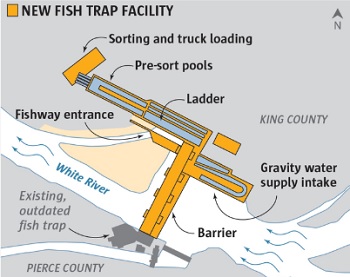
Corps of Engineers to complete New White River fish trap, the biggest facility of its kind in North America
At the insistence of tribes and federal fisheries managers, the Army Corps of Engineers will soon complete the biggest facility of its kind in North America, to capture and transport salmon to free flowing stretches of the White River, a tributary of the Puyallup. Big as an aircraft carrier and made of enough concrete to pave a mile and a quarter of Interstate 5, the White River Fish Passage Facility is expected to be completed in October. The $131 million facility includes a complex of gates, chutes, a fish ladder and even a pair of gleaming stainless steel augers pretty as an art piece, custom-made by J. Nelson Enterprises metalworks in Orting. The augers will lift fish into flumes that carry them to trucks for the 12-mile ride from the fish collection facility at Buckley, where they will be released back to the river above Mud Mountain Dam near Enumclaw, to spawn. >click to read< 14:32
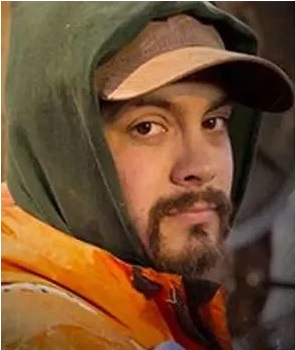
Deadliest Catch Fisherman Mahlon Reyes, Dead at 38
Mahlon Reyes, who was best known for starring in Deadliest Catch has died at the age of 38 after suffering a heart attack. The deckhand’s family have confirmed the news while sharing their “shock” over his tragic death. The sad news has been confirmed by Mahlon’s wife, who said his loved ones are “completely shocked” that he suffered a “massive heart attack”, as he had no existing health conditions his family knew of. His other half confirmed he died in his hometown of Whitefish, Montana after his heart attack last Saturday morning. Mahlon initially survived the heart attack after being rushed to hospital. >click to read< 14:23
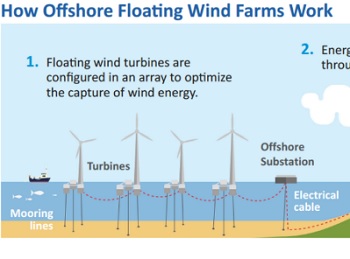
Fishing Industry Opposes New Floating Wind Farm Project Area
Navy says no to proposal to move floating wind farm area. The idea was discussed at the task force’s July 1 webinar, which replaced a planned public meeting in Morro Bay. Tom Hafer, president of the 90-member Morro Bay Commercial Fishermen’s Organization, criticized the proposal, saying it amounted to a “bait and switch.” Originally, Castle Wind, one of the proposed developers, suggested it would ask for a site for up to 100 turbines some 30 miles off the coast. The company spent months huddling with the Morro Bay fishing industry and the city and got them to agree to the idea. A memo of understanding was signed. The new task force proposal being discussed could move the 900-foot-tall turbines as much as half the distance closer to shore into waters they use for fishing, Hafer said. “This is going to screw up fishing,” Hafer said. “This is going to change the migratory habits of a lot of fish out there — albacore, salmon, black cod. Who knows what these are going to do?” Hafer also is concerned that the wind industry will want more territory in the future as well. >click to read< 09:15
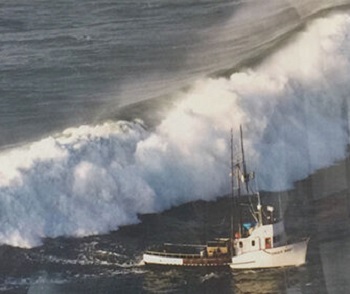
Highliner Glen Arthur ‘Art’ McCune Jr
February 1, 2020, at the young age of 90 years, Art passed away in Palm Springs, at Eisenhower Hospital, leaving his loving wife, Mary, children, grand children, and great grand children.,, Art learned of the commercial fishing industry in Crescent City. in the 40s. Later he returned in early 50s, going commercial crabbing out of Crescent City. He could be considered a pioneer in the commercial fishing industry always exploring new fishing grounds and made commercial fishing his lifetime career! Art fished salmon, albacore, and crab seasons. He also obtained a squid permit and did research for squid in southern waters for the fish and game. Art fished king crab in the Bering Sea in the early 60s. Art owned the fishing vessels, Falcon, We, Pacific Sea and Sally Kay. Art was known as a “highliner” among the fishermen and was respected by all who knew him. >click to read< 16:28
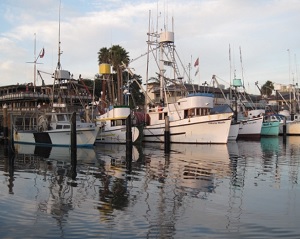
CARES Act: California Fisheries Relief Funding Soon to be Available for Select Sectors Affected by Coronavirus
Coastal and marine fishery participants – including licensed commercial fishermen, fish buyers, aquaculture businesses, charter boat owners and guides – who have experienced a loss of income due to the effects of COVID-19 may be eligible for federal relief funding disbursed through the California Department of Fish and Wildlife (CDFW). The funding is part of the federal Coronavirus Aid, Relief and Economic Security (CARES) Act. This more than $2 trillion economic relief package provides direct economic assistance for American workers, families and small businesses that have been impacted COVID-19. About $18 million in CARES funding was earmarked specifically for fisheries assistance in California. >click to read< 12:07
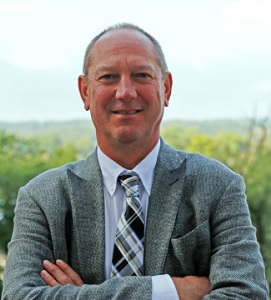
A message from Chris Oliver on National-Level Observer Waiver Criteria; Redeployment in Northeast To Begin
To improve transparency in our approach to observer deployment, we have established national-level criteria for vessels to be waived (released) from observer or at-sea monitor coverage. Going forward, observer or monitor coverage may be waived, for both full and partial-coverage fisheries, on a trip-specific basis if one of the following two criteria are met: (1) Observers or at-sea monitors are not available for deployment; or (2) The observer providers cannot meet the safety protocols imposed by a state on commercial fishing crew or by the vessel or vessel company on its crew. Within our limited authority, our efforts are intended to ensure observers and monitors are following the same safety protocols that fishermen are following. >click to read< 17:50
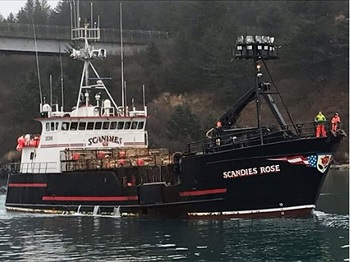
UPDATE: U.S. Coast Guard Marine Board of Investigation into loss of F/V Scandies Rose has postponed Pubic Hearing
The U.S. Coast Guard has postponed the public hearing, part of the larger investigation into circumstances surrounding the sinking of the commercial fishing vessel (F/V) Scandies Rose and the loss of five of its seven crewmembers. The hearing was scheduled to take place in Seattle September 8-18, 2020. The decision to delay the public hearing was made to protect the health of the investigative team, the witnesses, and families and to comply with federal and state travel restrictions to reduce the spread of COVID-19. “The public hearing is a critical part of the Marine Board of Investigation (MBI) process, one that requires transparency. Those affected by this tragedy have the right to attend in person and, if we can’t afford them that, we owe them an alternative means,” said Cmdr. Greg Callaghan, MBI Chair. >click to read< 13:57
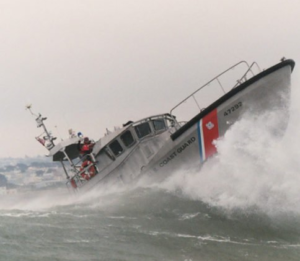
Coast Guard rescues fisherman as commercial fishing vessel sinks near Columbia River entrance
The Coast Guard rescued a fisherman from the water Tuesday morning after his vessel began taking on water and sank near the Cape Disappointment bar. At 1:30 a.m., watchstanders at Coast Guard Sector Columbia River received a VHF-FM radio mayday call from a man aboard a 37-foot commercial fishing vessel taking on water near Cape Disappointment, identified as the Fishing Vessel F/V Brejoh. A Coast Guard Station Cape Disappointment 47-foot Motor Lifeboat crew and a Sector Columbia River MH-60 Jayhawk helicopter crew responded. >click to read< 20:14:
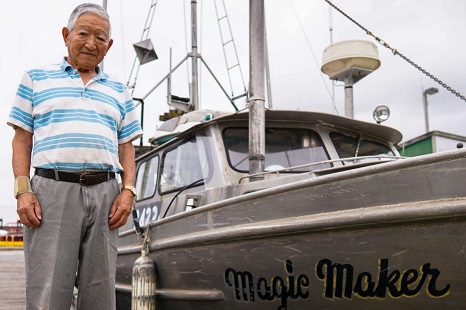
Three generations of the Hamada family have fished British Columbia’s coast. Will the latest outlive the salmon they seek?
The Hamadas tell me this story on a November night in 2019 in their one-story home built by Satoshi, tucked away in the heart of Richmond, a city that borders Vancouver. They moved into the house five months after Dereck was born. Huddled around a kitchen table better suited for two people, Satoshi, Dereck, June, and I peer over fishing catch receipts, dated newspaper clippings, and black-and-white photographs scattered across the tabletop, illuminated by bright-white kitchen lights overhead. Our conversation was supposed to have happened at sea aboard the Three generations, the family boat built by Satoshi in 1967. Dereck and Satoshi had invited me to join them on a chum fishing trip to mark Satoshi’s 66 years of fishing on the BC coast. Instead, we have gathered indoors, to look back on 2019, the year that everything changed. >click to read< 10:34
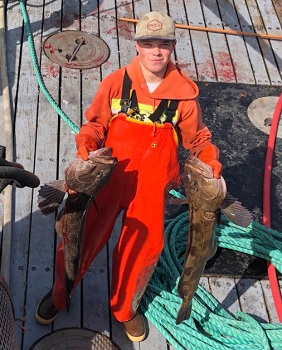
Cole Charles Rutzer – Memorial service is planned, date to be announced
Cole Charles Rutzer was born to Greg Rutzer and Lesley Ashby at Providence St. Peter in Olympia, Washington on March 5, 1998. The past few years Cole spent most of his time with his father and captain Greg, cousin Brent Gilbertson and friends Dylan Furford and Kaleb Orton working as a deckhand on the Pacific Dynasty. Cole died on July 2, 2020. His loyal companion, black lab Trigger, stayed with him until the end. Cole’s family plans to hold a service to honor his life near the end of August at Roberta Merino’s home. The date has yet to be set. Details of this gathering will be announced to the community once confirmed. >click to read< 08:03

Time to reform DFO – Unable to protect wild fish while managing commercial fisheries and ocean-based aquaculture
Conservation and angling groups on the West Coast are calling for radical reform of Fisheries and Oceans Canada, saying it appears unable to protect wild fish while managing commercial fisheries and ocean-based aquaculture. The B.C. Wildlife Federation, in a letter to Fisheries Minister Bernadette Jordan, says the federal department should be “independently reviewed and rebuilt” with a mandate to restore and recover failing salmon  populations. Many B.C. salmon runs are considered threatened or endangered, including most South Coast and Fraser River chinook, Interior Fraser coho, Fraser River sockeye and Interior steelhead. Some are down to just a few dozen individuals. >click to read< 10:38
populations. Many B.C. salmon runs are considered threatened or endangered, including most South Coast and Fraser River chinook, Interior Fraser coho, Fraser River sockeye and Interior steelhead. Some are down to just a few dozen individuals. >click to read< 10:38

Prince Charles, sea lice, & why salmon farming sucks – Norwegian investors hope to delouse the salmon industry with new facility in Maryland
Business media worldwide have for weeks failed to mention that fact in amplifying a July 7, 2020 announcement that the Norwegian firm AquaCon plans to build a $300 million land-based salmon farm on the eastern shore of Chesapeake Bay. Sea pen salmon farms have worn out their nets, welcome, and often their investment return ratios from Puget Sound to coastal Scotland and Scandinavia. Factory-farming salmon in land-based tanks promises to avoid some of the issues afflicting the aquaculture industry. Land-based salmon farms, for instance, may be better able than sea pen farms to control the disease outbreaks and pollution that have become hallmarks of the land-based salmon industry. >click to read< 13:01
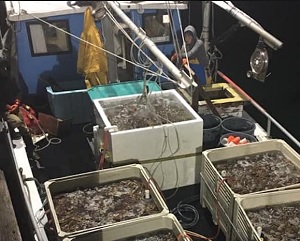
Coronavirus: Commercial Fishing During A Pandemic
My name’s Jake Bunch and I’m a commercial fisherman based out of Half Moon Bay, California. Jake started fishing in 2012. He fishes for king salmon, Dungeness crab, and sablefish, or black cod. Jake says he hasn’t been fishing anywhere near as much as he usually would this time of year. With shelter-in-place and other coronavirus related restrictions there just haven’t been enough buyers and reliable markets to make it worth it. Before COVID, about 75% of commercially fished salmon in California went to restaurants. Now, that market has mostly dried up. >click to read< 10:36
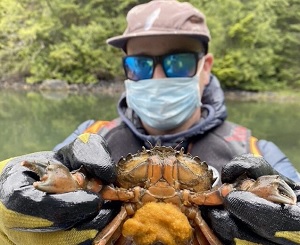
Vancouver Island: Invasion of the green crab
The invasive European green crab is proliferating at an alarming rate on the west and southern coasts of Vancouver Island, devouring smaller Dungeness crab and bivalves as well as the eelgrass that is critical to young salmon. The Department of Fisheries and Oceans has identified hotspots around Sooke and Barkley Sound, but environmental groups and First Nations say the green crab’s infestation extends to Haida Gwaii and likely most parts of the B.C. coast. They say “industrial trapping” of the green crab is essential before it wipes out local species and key habitats. >click to read< 19:19
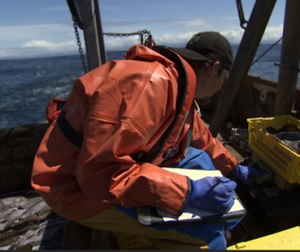
Fishing industry seeks emergency waiver from federal fishery observer requirement.
West Coast trawlers and fishing industry leaders looking to minimize the risk of exposure to the coronavirus are asking for an emergency waiver from a requirement to carry human observers. The National Marine Fisheries Service provided a two-week waiver from observer coverage in the spring. Chris Oliver, assistant administrator for NOAA Fisheries, clarified in a message posted Thursday that waivers remain available on a vessel-by-vessel basis. According to a spokesman, the federal agency has issued some individual vessel waivers for trips in the past three months — all were for times when observers were not available, not for other reasons, such as a vessel operator’s concerns about the coronavirus. >click to read< 15:54
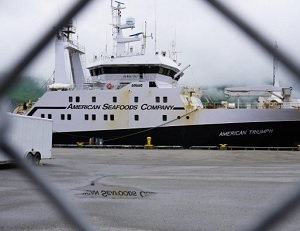
A factory fishing trawler is docked in Dutch Harbor with 85 Coronavirus cases. Now it’s headed for Seward.
More than two-thirds of the crew of a huge factory fishing vessel docked in the Aleutian fishing port of Dutch Harbor has tested positive for COVID-19, local authorities announced Sunday. The 85 cases are on board the American Triumph, owned by Seattle-based American Seafoods, one of the biggest players in the billion dollar Bering Sea pollock fishery. The American Triumph, and its crew members who tested positive, are scheduled to depart Unalaska late Sunday or early Monday with American Seafoods medical support personnel on board. They’re scheduled to sail to Seward and arrive by Wednesday,,, >click to read< 09:34
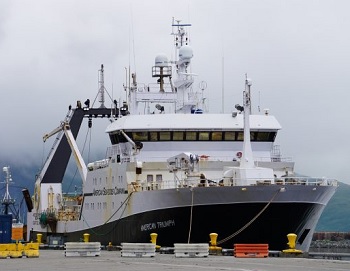
Seattle seafood company reports 6 more crew have Coronavirus in Dutch Harbor
The cases are onboard the American Triumph, which is operated by Seattle-based American Seafoods. Last month, the company announced that more than 100 crew members on three of the company’s six vessels had tested positive for the virus. At the time, experts questioned the company’s decision to mandate a five-day quarantine period, rather than the 14 days recommended by many health officials. American Seafoods subsequently said it had extended its quarantine period to two weeks. The cases announced Friday bring the total tally of positive cases on American Seafoods vessels to 117 since late May, according to spokesperson Suzanne Lagoni. >click to read< 10:18
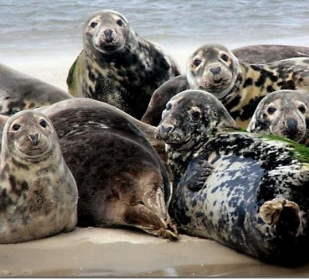
Great white sharks not the only threat gray seals bring – Here’s Why.
Over the winter, gray seals have — thanks in large measure to the protection afforded by the Marine Mammal Protection Act — further augmented their numbers. The “gray seal buffet” is once again open for business. But this season is, of course, unlike any in recent times. For the Cape and Islands, the coronavirus poses a far greater threat to the safety of its beachgoers and well-being of its economy than white sharks. But those threats are not necessarily unrelated. Here’s why. The Marine Mammal Protection Act is distinctive in that it not only protects all marine mammals, it protects them in perpetuity, regardless of their numbers and impact on co-existing species, including humans. Let me hasten to acknowledge that the act was necessary and appropriate when it was passed almost 50 years ago and remains so in most respects. Because it protects marine mammals permanently, it in effect relies on nature to take its course in controlling marine mammal populations and finding an appropriate balance among competing and coexisting marine species. >click to read< 09:06

Fisheries across nation seeking monitor waivers
What began in the fisheries of New England has spread across the country. Fishing stakeholders from as far away as the West Coast and Alaska have joined Northeast commercial fishermen in pressuring NOAA Fisheries to extend — and uniformly apply — waivers from having to carry at-sea monitors and other observers on vessels while the COVID-19 pandemic still rages. The Seafood Harvesters of America, an umbrella organization that represents 18 separate fishing groups from Maine to Alaska, wrote to NOAA Fisheries and Department of Commerce officials this week to advance many of the same safety arguments against reinstating observers aboard commercial fishing vessels in the midst of the pandemic. >click to read< 16:30






